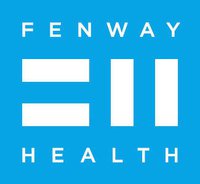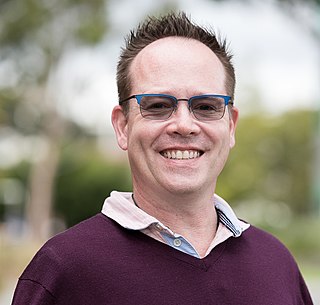Related Research Articles

The Presidential Advisory Council on HIV/AIDS (PACHA) advises the White House and the Secretary of Health and Human Services on the US government's response to the AIDS epidemic. The commission was formed by President Bill Clinton in 1995 and each president since has renewed the council's charter.
Lani Kaʻahumanu is Kanaka Maoli bisexual and feminist writer and activist. She is openly bisexual and writes and speaks on sexuality issues frequently. She serves on the editorial board of the Journal of Bisexuality. She is also working on the books My Grassroots Are Showing: Stories, Speeches, and Special Affections and Passing For Other: Primal Creams and Forbidden Dreams – Poetry, Prose, and Performance Pieces. In 1974, she divorced her husband and moved to San Francisco, where she originally came out as a lesbian. She was a student leader in the nascent San Francisco State Women Studies Department, and in 1979, she became the first person in her family to graduate from college. Kaʻahumanu realized she was bisexual and came out again in 1980.
AIDS service organizations are community-based organizations that provide support for people affected by HIV/AIDS. This article focuses on HIV/AIDS service organizations in the United States only. However, it is important to note that similar organizations in other countries, such as Canada, also played significant roles during the HIV/AIDS crisis and share many common experiences and challenges.
Women who have sex with women (WSW) are women who engage in sexual activities with women, whether they identify as straight, lesbian, bisexual, pansexual, have other sexualities, or dispense with sexual identification altogether. The term WSW is often used in medical literature to describe such women as a group for clinical study, without needing to consider sexual self-identity.
Howard Brown Health is a nonprofit LGBTQ healthcare and social services provider that was founded in 1974. It is based in Chicago and was named after Howard Junior Brown.

Many retirement issues for lesbian, gay, bisexual, transgender (LGBT) and intersex people are unique from their non-LGBTI counterparts and these populations often have to take extra steps addressing their employment, health, legal and housing concerns to ensure their needs are met. Throughout the United States, "2 million people age 50 and older identify as LGBT, and that number is expected to double by 2030", estimated in a study done by the Institute for Multigenerational Health at the University of Washington. In 1969, the Stonewall Riots marked the start of the modern gay rights movement and increasingly LGBTQ+ people have become more visible and accepted into mainstream cultures. LGBTQ+ elders and retirees are still considered a newer phenomenon creating challenges and opportunities as a range of aging issues are becoming more understood as those who live open lives redefine commonly held beliefs and as retirees newly come out of the closet.

Timeline of events related to sexual orientation and medicine
Rebecca Anne "Becky" Allison is an American cardiologist and transgender activist. She served as President of the Gay and Lesbian Medical Association (GLMA) and as Chair of the American Medical Association's Advisory Committee on Lesbian, Gay, Bisexual, and Transgender Issues.

Perry N. Halkitis is an American of Greek ancestry public health psychologist and applied statistician known for his research on the health of LGBT populations with an emphasis on HIV/AIDS, substance use, and mental health. Perry is Dean and Professor of Biostatistics, Health Education, and Behavioral Science at the Rutgers School of Public Health.
Various topics in medicine relate particularly to the health of lesbian, gay, bisexual, transgender, queer, intersex and asexual (LGBTQIA) individuals as well as other sexual and gender minorities. According to the US National LGBTQIA+ Health Education Center, these areas include sexual and reproductive health, mental health, substance use disorders, HIV/AIDS, HIV-related cancers, intimate partner violence, issues surrounding marriage and family recognition, breast and cervical cancer, inequities in healthcare and access to care. In medicine, various nomenclature, including variants of the acronym LGBTQIA+, are used as an umbrella term to refer to individuals who are non-heterosexual, non-heteroromantic, or non-cis gendered. Specific groups within this community have their own distinct health concerns, however are often grouped together in research and discussions. This is primarily because these sexual and gender minorities groups share the effects of stigmatization based on their gender identity or expression, and/or sexual orientation or affection orientation. Furthermore, there are subpopulations among LGBTQIA+ groups based on factors such as race, ethnicity, socioeconomic status, geographic location, and age, all of which can impact healthcare outcomes.

Fenway Health is an LGBT health care, research and advocacy organization founded by Northeastern University students and headquartered in Boston, Massachusetts.

The first English-language use of the word "bisexual" to refer to sexual orientation occurred in 1892.
Since reports of emergence and spread of the human immunodeficiency virus (HIV) in the United States between the 1970s and 1980s, the HIV/AIDS epidemic has frequently been linked to gay, bisexual, and other men who have sex with men (MSM) by epidemiologists and medical professionals. It was first noticed after doctors discovered clusters of Kaposi's sarcoma and pneumocystis pneumonia in homosexual men in Los Angeles, New York City, and San Francisco in 1981. The first official report on the virus was published by the Center for Disease Control (CDC) on June 5, 1981, and detailed the cases of five young gay men who were hospitalized with serious infections. A month later, The New York Times reported that 41 homosexuals had been diagnosed with Kaposi's sarcoma, and eight had died less than 24 months after the diagnosis was made.
The Pride Center of Vermont, formerly the RU12? Community Center, was founded by two students at the University of Vermont and Middlebury College in 1999. The organization was run by volunteers until the first Executive Director was hired in 2002. RU12? is the only non-profit organization mission-driven to serve lesbian, gay, bisexual, transgender, and queer (LGBTQ) Vermonters of all ages. The mission of the organization is to celebrate, educate, and advocate with and for LGBTQ Vermonters.
Jeffrey T. Parsons is an American psychologist, researcher, and educator; he was a Distinguished Professor of Psychology at Hunter College and The Graduate Center of the City University of New York (CUNY) and was the Director of Hunter College's Center for HIV/AIDS Educational Studies & Training, which he founded in 1996. Parsons was trained as a developmental psychologist and applied this training to understand health, with a particular emphasis on HIV prevention and treatment. He was known for his research on HIV risk behaviors of gay, bisexual, and other men who have sex with men (GBMSM), HIV-related syndemics, and sexual compulsivity. He resigned his positions at CUNY on July 3, 2019, following a year-long university investigation of misconduct allegations against him. In 2023, the U.S. Attorney's Office announced that he was required to pay a $375,000 settlement for engaging in fraud against the federal government for many years.
Brian Mustanski is an American psychologist noted for his research on the health of LGBT youth, HIV and substance use in young gay and bisexual men, and the use of new media and technology for sexual health promotion and HIV prevention. He is a Professor of Medical Social Sciences, Psychiatry and Behavioral Sciences, and Psychology and Director of the Institute for Sexual and Gender Minority Health and Wellbeing at Northwestern University, Chicago, Illinois.
The first case of HIV in a woman was recorded in 1981. Since then, numerous women have been infected with the HIV/AIDS virus. The majority of HIV/AIDS cases in women are directly influenced by high-risk sexual activities, injectional drug use, the spread of medical misinformation, and the lack of adequate reproductive health resources in the United States. Women of color, LGBTQ women, homeless women, women in the sex trade, and women intravenous drug users are at a high-risk for contracting the HIV/AIDS virus. In an article published by the Annual Review of Sociology, Celeste Watkins Hayes, an American sociologist, scholar, and professor wrote, "Women are more likely to be forced into survival-focused behaviors such as transactional sex for money, housing, protection, employment, and other basic needs; power-imbalanced relationships with older men; and other partnerings in which they cannot dictate the terms of condom use, monogamy, or HIV." The largest motivator to become part of the sex trade was addiction, the second largest being basic needs, and the third was to support their children/family.

The health access and health vulnerabilities experienced by the lesbian, gay, bisexual, transgender, queer or questioning, intersex, asexual (LGBTQIA) community in South Korea are influenced by the state's continuous failure to pass anti-discrimination laws that prohibit discrimination based on sexual orientation and gender identity. The construction and reinforcement of the South Korean national subject, "kungmin," and the basis of Confucianism and Christian churches perpetuates heteronormativity, homophobia, discrimination, and harassment towards the LGBTQI community. The minority stress model can be used to explain the consequences of daily social stressors, like prejudice and discrimination, that sexual minorities face that result in a hostile social environment. Exposure to a hostile environment can lead to health disparities within the LGBTQI community, like higher rates of depression, suicide, suicide ideation, and health risk behavior. Korean public opinion and acceptance of the LGBTQI community have improved over the past two decades, but change has been slow, considering the increased opposition from Christian activist groups. In South Korea, obstacles to LGBTQI healthcare are characterized by discrimination, a lack of medical professionals and medical facilities trained to care for LGBTQI individuals, a lack of legal protection and regulation from governmental entities, and the lack of medical care coverage to provide for the health care needs of LGBTQI individuals. The presence of Korean LGBTQI organizations is a response to the lack of access to healthcare and human rights protection in South Korea. It is also important to note that research that focuses on Korean LGBTQI health access and vulnerabilities is limited in quantity and quality as pushback from the public and government continues.

David "Davey" M. Smith, is an American translational research virologist, chief of the Division of Infectious Diseases and Global Public Health at the University of California San Diego, co-director of the San Diego Center for AIDS Research, and vice chair of research in the Department of Medicine at UC San Diego. His research interests include transmission, prevention, and treatment of both HIV and SARS-CoV2 (COVID-19). Since joining the UC San Diego faculty in 2003, Smith has been awarded more than $37 million in federal funding as a principal investigator. His research interests include transmission, prevention, and treatment of both HIV and COVID-19.
References
- ↑ Mayer, Kenneth H.; Pizer, H. F. (2004-12-21). The AIDS Pandemic: Impact on Science and Society. Elsevier. ISBN 978-0-08-047580-6.
- ↑ Boston, 677 Huntington Avenue; Ma 02115 +1495‑1000 (2020-10-15). "Kenneth Mayer, MD". Harvard Center for Population and Development Studies. Retrieved 2022-04-02.
{{cite web}}: CS1 maint: numeric names: authors list (link) - 1 2 "Kenneth H. Mayer, MD - Fenway Health: Health Care Is A Right, Not A Privilege" . Retrieved 2022-04-02.
- 1 2 3 4 5 6 "Mayer, Kenneth". vivo.brown.edu. Retrieved 2022-04-02.
- ↑ Mayer, Kenneth (2008). The Fenway Guide to Lesbian, Gay, Bisexual, and Transgender Health. ACP Press. ISBN 978-1-930513-95-2.